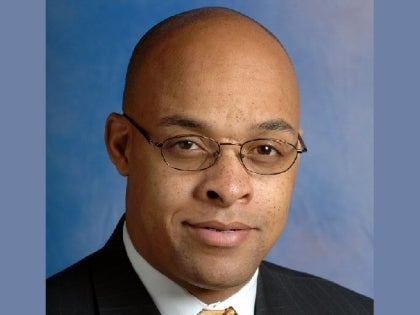
Senator Thompson Sponsors Hazardous Rail Shipment Resolution
Antoine M Thompson
September 8, 2009
-
ISSUE:
- Environment
Contact:
Mark Boyd, 716-854-8705, mboyd@senate.state.ny.us
Bill Nowak, 716-854-8705, bnsenate@verizon.net
Buffalo, NY- New York State Senator Antoine M. Thompson (D- Parts of Erie & Niagara Counties) today introduced a Senate Resolution to protect citizens from terrorist threats on hazardous rail cargo being moved through New York State’s urban neighborhoods. New York City, Albany, Buffalo, Rochester, and Syracuse are all classified as High Threat Urban areas by the U.S. Department of Homeland Security as of their 2008 list. Yet railroads are almost unilaterally making decisions about how to route hazardous cargo through urban areas without any public input, and with very little input from state and local security officials.
Thompson’s resolution requests the Obama administration to revise routing regulations so that railroads are mandated to have input from state and local officials to determine the safest and most secure routes for hazardous cargoes such as chlorine gas and anhydrous ammonia. These gases can cause catastrophic health impacts and billions of dollars in damage if released in densely populated areas.
“This is primarily a health and safety issue” Senator Thompson noted, “I aim to insure that urban communities are protected from life threatening situations by closing this loophole and making sure that the railroads are working with local governments to provide routing that protects public health and reduces the threat of terrorism to our citizens.”
Under a process set up by the Bush Administration, September 1st is the deadline for railroads to make initial routing information available on a very limited basis to officials from the US Federal Railroad Administration. Although railroads may have gleaned information from local and state officials in proposing these routes, there is no requirement that they follow the guidance of local officials. There is also no mandate that they use competitors rail lines when doing so would avoid carrying cargo through highly populated areas.
The National Conference of State Legislatures and others have expressed concern about this closed process, which leaves decision making almost completely in the hands of railroad executives and locks out local officials who often have the best handle on relevant local data necessary to secure public safety.
-30-
Share this Article or Press Release
Newsroom
Go to Newsroom2010 State of the 60th District Report
March 19, 2010
State of the 60th Senatorial District
March 15, 2010